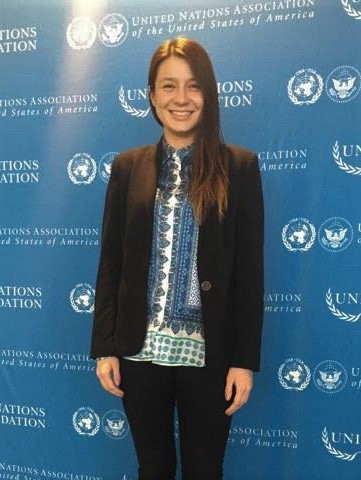
by Madison McHugh | Sep 20, 2017 | Internship Experiences, Undergraduate Students
My name is Daniela Uribe, and I am a senior student of Diplomacy and International Relations from Seton Hall University. I am from Colombia and moved to the United States four years ago to pursue my college education. As part of my learning experience at Seton Hall, I had the chance to intern at the Consulate of Colombia in New Jersey for seven months. The Consulate of Colombia is a government organization that represents and assists its nationals in international territories in order to provide legal assistance, notarize documents, and protect the interest of its citizens.
I decided I wanted to intern at the Colombian Consulate because the country was beginning a new development in its national security since the government’s negotiation and national referendum with the largest terrorist group in the territory, Las FARC. Since the Consulate represents the government of Colombia in the U.S., its role in this development was to organize, educate, and prepare nationals to participate in the referendum. Thanks to this call I was able to start interning at the consulate the week after I applied.
There was a lot of work to be done. As a Consular Intern, I assisted government officials in their consular assignments and assisted nationals with processes such as voting and serving as judges the day of the referendum. In addition, I contacted nationals and spoke effectively about the importance of participating in the referendum, including clarifying inaccurate information. One of the common questions was about viability to vote – whether one fulfulls the requirements set to vote. The National Registry provides ID numbers for nationals to vote in a specific place, and they needed to be informed of the location.
Another large role I played was educating people about the agreement. The agreement was 150 pages, and I needed to know it very well. If I had not studied Diplomacy and International Relations, I would have not been able to understand the type of language the document contained.
Dr. Tinker’s Public International Law course taught me about the importance of language in this type of document; how it could have different interpretations from different parties and how it becomes binding; how much responsibility each party has and the mechanisms of implementation. My class experience prepared me to raise questions and pose concerns during training times and participate in scholarly discussions during the preparation period.
After this experience, I was able to better understand the role and challenges of the consulates and government officials. They cannot advocate for a specific vote, but they must provide all the tools to inform the public to decide freely and support them throughout the process.
I enjoyed every second of the experience. I worked so hard, it felt like a full-time job, but I also learned so much about government and public diplomacy. We also faced challenges, too, during the vote: people showing propaganda, adding extra votes, or voting when they were not registered. It was very interesting being both central to the event and behind-the-scenes.
After the vote, I was selected to help tally the votes and upload the results for New Jersey. It was an honor and privilege to serve my country in this way.
I felt that this was my real job (even while unpaid!) in many ways, but the quality of learning I received from this experience made it so worthy.
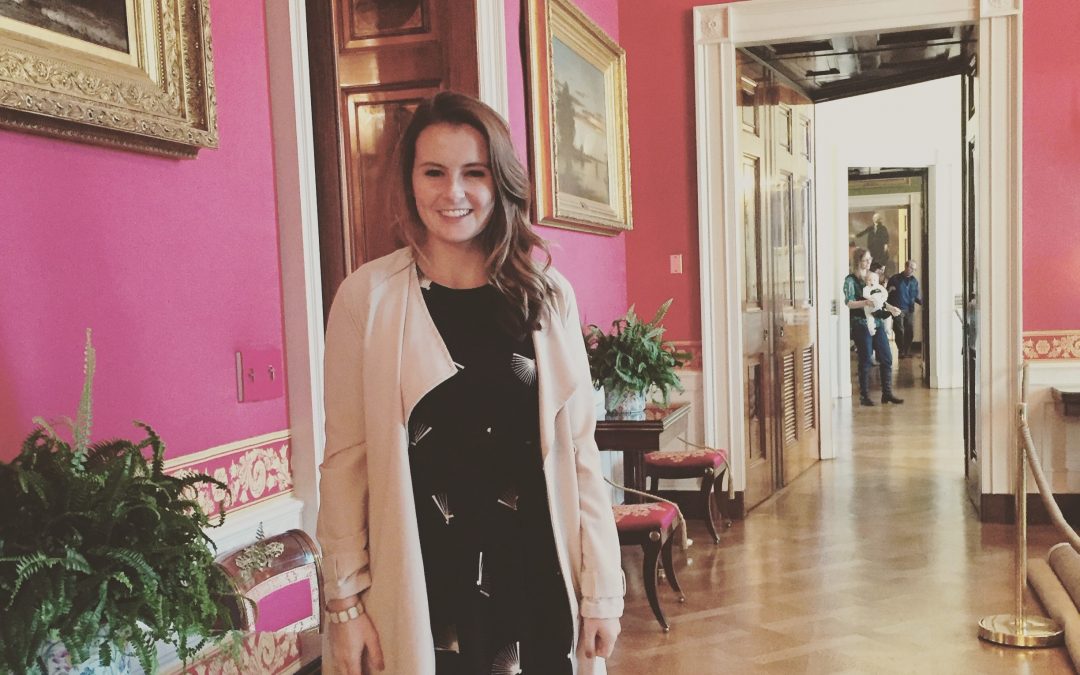
by Thomas Ashe | Feb 6, 2017 | Internship Experiences, Undergraduate Students
My name is Courtney Boland. My experience living and working in Washington D.C. was an eye-opening experience. At the United States Agency for International Development (USAID), I participated in projects that extended throughout the world, all with the overarching goal of ending extreme poverty and promoting resilient societies. In the Bureau of Legislative and Public Affairs, I worked with several different departments and witnessed the wide range of agency operations.
Right from the beginning, I dove right in to support the agency’s work at the United Nations General Assembly (UNGA). I worked previously at the UNGA during my time as an intern at the British Consulate General in New York City so I was able to smoothly transition into my new role. Furthermore, when Hurricane Matthews devastated the Caribbean, specifically Haiti, I had the opportunity to see how USAID responded to natural disasters and humanitarian crises. This was a particularly enormous task for the Public Affairs team. All the staff members, including myself, had to ensure accurate information was disseminated out to the public and to USAID’s mission in Haiti as quickly as possible. I gained first-hand experience in the preparation and “war-room “style of operations for disasters.
While all the work I contributed to at USAID has been exciting, the most rewarding was working for First Lady Michelle Obama’s Let Girls Learn initiative. I always admired her global campaign to bring education to 62 million girls who are currently not enrolled in school. The experience to support that mission was certainly very surreal. I tailored my academic studies to gender equality and the importance of female education, which served as key issues of interest for USAID. I assisted in strategic communications for the premiere of The First Lady’s CNN documentary “We Will Rise,” which focused on her trip to Liberia and Morocco where she met with Let Girls Learn beneficiaries. I also visited the White House with my supervisor to meet with our FLOTUS Office counterparts and was even given the opportunity to have a tour of the White House — a D.C. dream come true.
Working for the U.S. government provided me with the opportunity to learn more about the inner-operations of the federal government. Additionally, I witnessed how government agencies prepare for transition from one administration to another. I did not realize how intensive it is and how many people actually leave the agency once President Obama’s administration comes to an end. This is important for me to experience especially if I plan to work in the U.S. government again one day. This experience made it ever more clear to me that I want to continue to work in Washington D.C. following graduation in May.
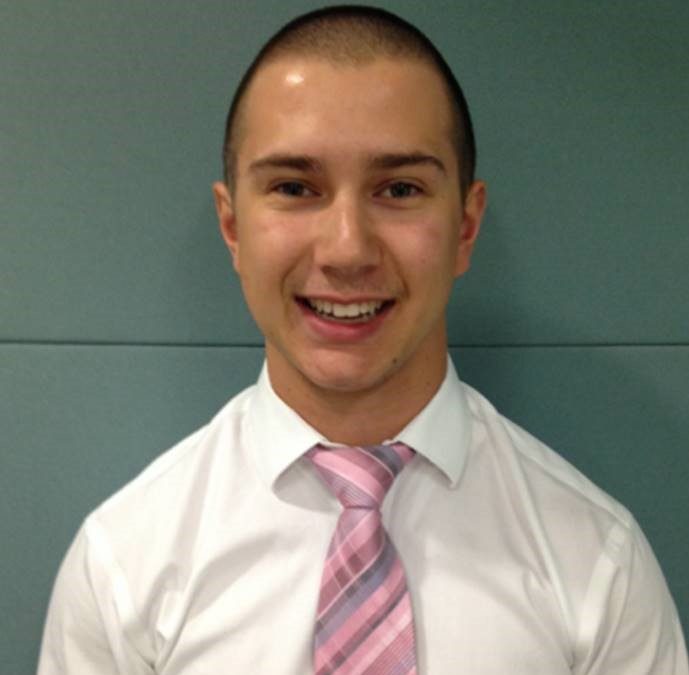
by Thomas Ashe | Feb 6, 2017 | Internship Experiences, Undergraduate Students
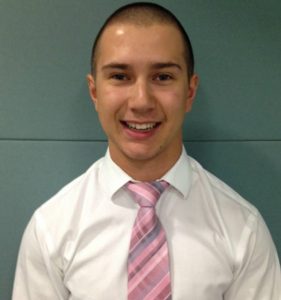 My name is Andrew Cameron and I am a senior Diplomacy and International Relations major. This past fall I interned at the Council on Foreign Relations (CFR) in New York City. My work at the CFR was a very educational experience that provided me with some amazing opportunities. The second week into my internship notably coincided with the annual United Nations General Assembly (UNGA) meetings! This was one of the busiest weeks for the Council due to the large number of heads of state, scholars, and diplomats who travel into the city.
My name is Andrew Cameron and I am a senior Diplomacy and International Relations major. This past fall I interned at the Council on Foreign Relations (CFR) in New York City. My work at the CFR was a very educational experience that provided me with some amazing opportunities. The second week into my internship notably coincided with the annual United Nations General Assembly (UNGA) meetings! This was one of the busiest weeks for the Council due to the large number of heads of state, scholars, and diplomats who travel into the city.
At CFR, I worked in the Corporate Department. Notably, CFR is far more than an organization that publishes Foreign Affairs magazine. With an elite corporate member base, my department regularly conducts events of varying sizes. Events range from conference calls where experts and senior executives weigh in from their offices worldwide, to large speaker seminars held at our Washington D.C. or New York office. The corporate department’s main function is to serve our members and educate them on international events. Proposed legislation, armed conflicts, and many other topics can be very pertinent to decisions companies make as they engage in global trade and commerce.
My position essentially comprised of two main job functions. The first area was logistics and event staffing. I had the opportunity to staff some very exciting events that included speakers such as then-Vice President Joe Biden to New Zealand Prime Minister John Key. For the most part I worked check in at the events, and I was then able to sit in on the meetings and work microphones during question and answer sessions. Given exposure to these very influential figures and having heard their ideas provided me with several exciting opportunities. To me this has definitely been the highlight of my position. Just as exciting was experience firsthand how the topics I have researched in my academic classes actually are discussed by high level executives and civil servants. For example, the New Zealand Prime Minister spoke to CFR about the Trans-Pacific Partnership, a trade agreement I wrote numerous papers on and discussed in many classes. Seeing how relevant my education is, and having the background knowledge to understand and analyze the statements made during these sessions is an extremely interesting and rewarding experience.
I definitely enjoyed my time at the Council on Foreign Relations. Getting a taste of the real world was an exciting adventure.
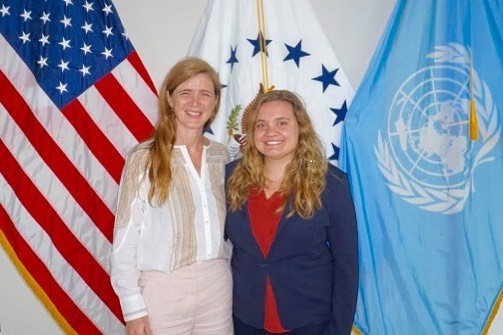
by Catherine Ruby | Sep 21, 2016 | Internship Experiences, Undergraduate Students
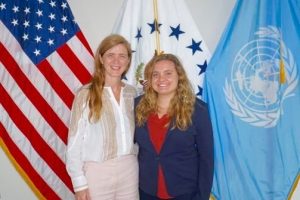
I interned for the U.S. State Department, Press and Public Diplomacy Office, at the U.S. Mission to the UN. This experience was a great one that not only taught me about work at the Department of State and the UN but also gave me my first insight into communications work, something I now consider a post-grad option that I never considered before.
Press interns at the US Mission have two main responsibilities including news monitoring and transcriptions. The Press Office is responsible for putting out verbatim transcriptions of U.S. ambassadors’ remarks at the UN and in other venues where they are operating in an official capacity. These remarks are released to the public and are government records, hence there is a high expectation of accuracy. Many reporters will ask the Press Office for transcripts of ambassadors’ remarks to include quotes in their articles. These reporters are often on deadline which increases the need for these transcripts to be done as quickly as possible. While our supervisors always checked our work before any transcripts were released, this task taught me a lot about how to work quickly under pressure while still maintaining a standard of excellence.
I also attended “brown bag lunches” that the Human Resources Department set up for the interns. We were able to have an hour long discussion with executives from different sections within the mission. This was an opportunity to learn from people doing work in all of the areas the U.S. Mission operates. We heard from many Foreign Service officers in the political and economic sections and what their responsibilities were in those areas. It was interesting to see how their work differed from the work of the Public Diplomacy officers that we worked with in press. My favorite part of these lunches was speaking with the economic officers as I am majoring in Economics as well as Diplomacy. One statement that stuck with me months later was from a discussion with an experienced economics officer who saw what she did as a form of ‘journalism’ for the government. These officers’ duties involve gathering information on the ground in whichever country they are stationed in and writing cables or “articles” that are then sent back to Washington. As someone who has always loved to write and even considered journalism as a career path, this was an eye opening conversation that showed me how I could combine all of my passions; economics, diplomacy, and writing; in a job with the U.S. State Department or another area of the federal government.
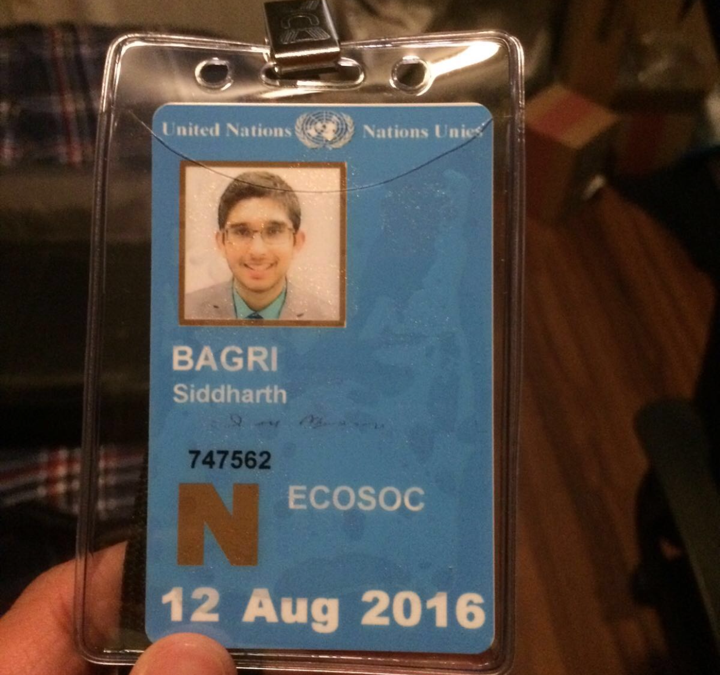
by Catherine Ruby | Aug 23, 2016 | Internship Experiences, Undergraduate Students
Working with Caritas Internationalis’ UN delegation with Mr. Joseph Donnelly gave me a close look inside the UN and on how NGO’s interact with the UN. Caritas is one of the world’s largest humanitarian organizations and much of my work involved researching and relaying information to my supervisor in order to help with his advocacy work. There was a focus on the current volatile situations in the 5 year old newest country, South Sudan, and the border regions of the country of Sudan itself. Sudanese forces have indiscriminately bombed civilians to the point where they have to retreat into caves in order to save themselves. Caritas is trying to provide aid to the people there but the government has also shown itself to be willing to bomb hospitals.
Caritas hosted the visit of a Sudanese Catholic bishop to advocate with UN agencies, Member States and NGOs about the sustained violence, intense human security and injustices taking place in South Kordofan, Nuba Mountains and Blue Nile regions. I scheduled meetings for the bishop. It was interesting to see how meetings are usually arranged in the UN system and I was surprised to learn how last minute some of them ended up being.
Organization is a key skill that I refined during this internship and I also sharpened my research skills. Towards the end of my internship I was asked to shift my focus to Latin America and the events going on there. I researched the current status of the historic peace process in Colombia between the government and the FARC after 50 years of fighting and a 2016 SC resolution/mechanism. This was an interesting experience, especially since I had to make sure that I filtered articles by date and made sure that my sources were reliable. This may sound like a straightforward and basic thing to do, but I realized that any mistakes that I made would have ramifications beyond me. This caused me to pay closer attention to small details.
I also learned to assess diplomatic language to a certain degree. I had the opportunity to attend meetings at the UN such as meetings in the ECOSOC chamber and the Security Council. Being able to hear how diplomats talk when they make speeches helped me navigate through the meanings beyond what was said. I am not exactly proficient at this, but it was a skill I previously did not have, and the more I refined it, the more interesting those meetings became.
My biggest takeaway from this internship would have to be a newfound appreciation for the UN and the various organizations that participate in the system. In the past, I was quite critical of the UN. I never thought that it should not exist, but I did think that the political dimension of it was a dead end that never seemed to work. The humanitarian work that the UN provided was the only thing it seemed to do better than anyone else, but since working at the UN I have come to realize that the UN is not a monolithic entity. Organizations like UNICEF are technically separate from the UN bureaucracy and so is the Security Council.
I realize now that the UN has taken the fall for many mistakes that originated from the member states, and that the UN is only as strong and as effective as the member states want to be. Politics certainly gets in the way of many of the initiatives that the UN tries to undertake, but the UN is still able to function despite the obstacles. I had never really considered the UN as a possible career path, but now that I have completed my internship there, I would not mind searching for a job there.
I would definitely recommend this internship to others. Perhaps they will walk away with a greater appreciation for the UN, as I did.
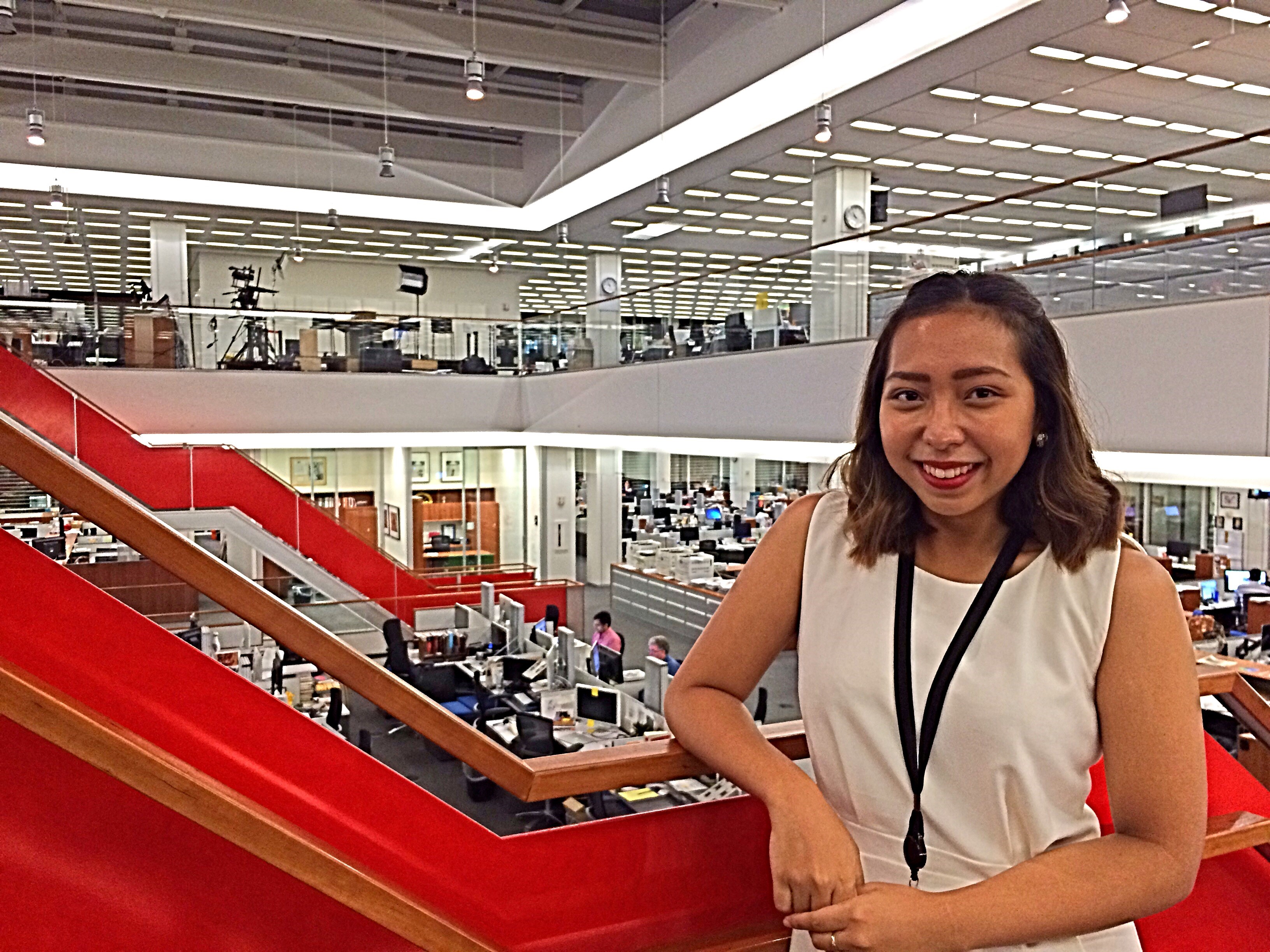
by Catherine Ruby | Aug 18, 2016 | Internship Experiences, Undergraduate Students
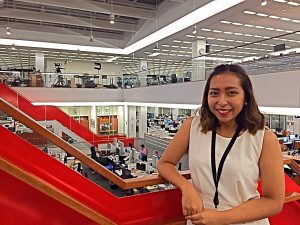
After Deadline – My Summer at The New York Times
I started my internship at The New York Times on the day of the Orlando attacks, the worst mass shooting in United States history.
Or maybe this thrilling summer began in May, when I spent a week at Temple University with 12 other lucky souls in what was, basically, editing boot camp – seven days that began with a wakeup call at 6 a.m. and ended after falling asleep on my books well past 1 a.m.
Let’s go even further and say the adventure started in December, two weeks before finals, when I got a phone call from a kindly old man who told me out of the blue that he would see me in Philadelphia. Confused, I asked, “Excuse me, what is this for?” And Professor Edward Trayes said, “Oh, The New York Times is looking to pay you $1000 a week to be an editing intern – does that sound good?”*
But this story really kicked off when I spent the entire month of October reviewing for the Dow Jones News Fund copy editing test – a tear-inducing, confidence-busting exam that around 1000 applicants subject themselves to every year, just for a shot at the world’s greatest bastion of journalism.
I thought I’d flunked the test, which made the call from Dr. Trayes all the more surprising. At that point, I would have been happy to be assigned to any desk at the Times, but Dr. Trayes thought I would be a good fit for the Foreign/National desk – or, paradise for an international relations major observing her first U.S. election.
Foreign/National was inundated by so much bad news this summer (multiple bombings, multiple shootings, multiple email scandals from the Democrats, multiple gaffes from Donald Trump) that one of the staff editors, a former Dow Jones intern, said, “Francesca, this is the no-joke desk. You should be proud of yourself for surviving this summer.”
Honestly, I’m just relieved I survived the hours: I worked on Saturdays from 9:30 a.m. to 4:30 p.m., then on Sundays to Wednesdays from 4 p.m. to 11 p.m.
A lot of things copy editors do are easier said than done – for example, writing a headline that is punchy and attention-grabbing and an accurate summary of the story while staying true to the lofty Timesian tone and fitting into the allotted layout perfectly is an art form.
The challenge for us interns was to make it on “After Deadline” – a weekly list on the Times’s internal blog that recognizes the past week’s best headlines. Only one out of nine ever made it (spoiler alert: it wasn’t me). Getting my first headline through to print had been hard enough, but it finally happened on a story about Hillary Clinton and Elizabeth Warren. My proudest achievement, though, was on the first night on the Democratic convention: I wrote the headline for a story about Michelle Obama’s relationship with Hillary Clinton, and for a few hours that night, it was the first hit on Google if you searched “Michelle Obama.”
There are many things that people don’t realize about newspapers. The locations you see at the top of the article? Those are called datelines, and they indicate that the reporter was actually on the ground. But that doesn’t mean real journalism is putting on a helmet and running around a war zone with a GoPro. Some budding news websites like to put reporters in the center of the story, producing content such as “Here’s What Happened When I Had Dinner with a Taliban Leader,” or something like that. The New York Times is the only legacy newspaper that still maintains an extensive international staff in bureaus throughout the world, and reporters are assigned to a region for extended periods, not just for one-day trips.
The highlight of my internship with the New York Times was when I met Azam Ahmed, the bureau chief formerly in Kabul and now in Mexico City. I was excited not only because he was a foreign correspondent, but also because he had written the article on Taliban justice that inspired my thesis. Talking to him made me want to be a foreign correspondent all the more. You could read every academic paper about Afghanistan, but an ivory tower academic will never be able to tell you about Afghanistan the way a journalist on the ground can.
Of course, it’s going to be a while before I’m anywhere close to being worthy of Azam’s credentials.
But this summer at The New York Times was an important stepping stone, and I am grateful to have experienced how a world-renowned newsroom with the highest standards works. Now it falls on me to build my street cred as a journalist and, hopefully, work my way back to the august institution on Eighth Avenue.
*I kid you not – this was how the conversation actually went.
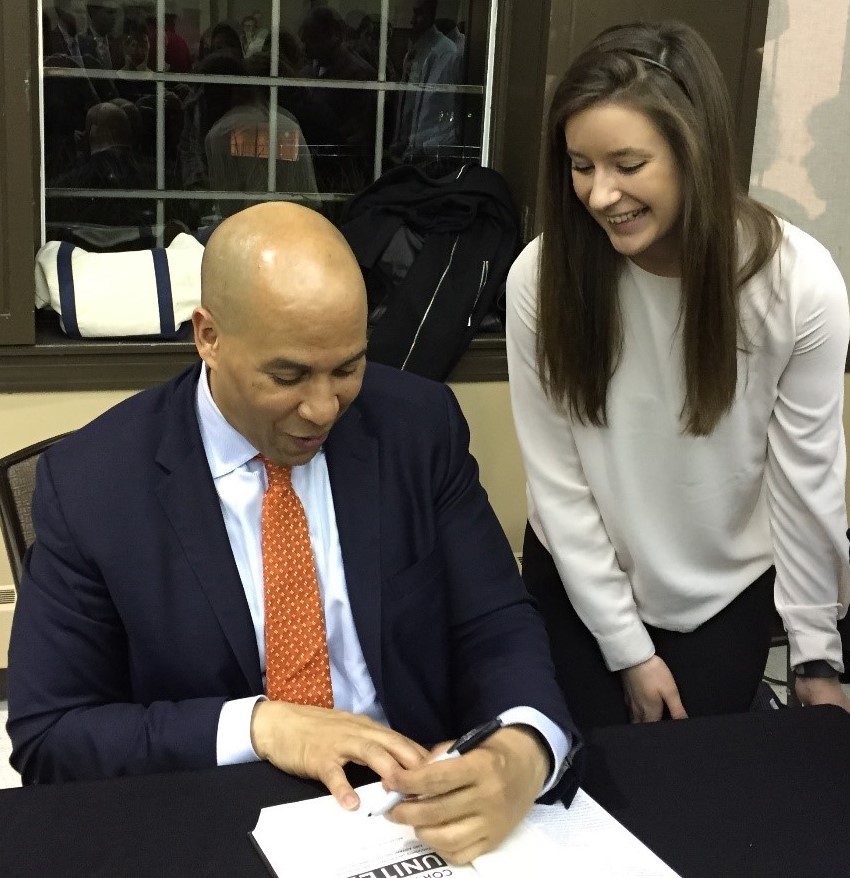
by Carolin Braxenthaler | May 5, 2016 | Internship Experiences, Undergraduate Students
Most people would describe the city of Newark as a struggling neighborhood of crime and poverty. However, my experience working for the Office of Senator Cory Booker has opened my eyes to see Newark and many other cities as thriving hubs of opportunity and development.
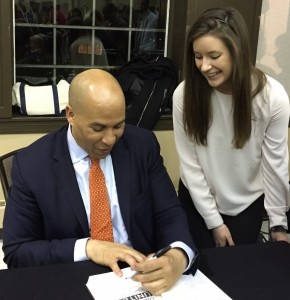
Diplomacy student Clare Duda with Senator Cory Booker
Senator Booker splits his time between Washington D.C. and New Jersey for congressional duties, travels in support of the 2016 presidential elections, and is currently on a book tour for his new bestseller “United”. As the Senator reports to his busy schedule, his office staff is the engine that keeps the congressional machine running. The Senator’s office in Newark is full of youthfully charged energy ready to take on any constituent inquiry, state development, and congressional opportunity released to the Senator. As an intern for a federal office, the day begins with a review of daily newspapers to keep each of the three senate offices, located in Washington D.C., Camden, and Newark, up to date with current events and happenings involving the state of New Jersey and Senator Booker himself. As time in the office of the Senator has passed I have had the opportunity to work with constituent advocates, case workers, and special project teams to work on policy memos, research speech materials, and respond to constituent requests.
Constituents usually write to the Senator when they are in need of help and have nowhere else to turn. I have had the opportunity to work on cases regarding immigration, environmental concerns, military affairs, health, and education. Along with deciphering if a new case can be developed by a federal office, I have interacted with constituents one on one, gaging cases and assigning each one to the proper caseworker to take care of their issue. The Senator’s office is dedicated to assisting constituents with concerns. I have become a part of a team which has reached out on behalf of immigration visas, retrieved documents from the VA, and worked with Medicaid providers to deliver health care resources to constituents who could not afford them. As time has passed in the Newark office I have witnessed the level of dedication each staff member has to their job and the citizens of New Jersey. The senatorial staff has exemplified dedication, professionalism, and compassion within the workplace and I would encourage anyone to write to the office of Senator Booker if they were ever to have a congressional inquiry.
As an international relations and diplomacy major I focus my interest in the national security and intelligence sectors of the federal government. I use talents developed through the School of International Relations and Diplomacy to brief policy documents, critically analyze cases, and develop writing samples for community outreach. Working for Senator Booker has provided me with the foresight of how a federal office operates and has furthered my interest in a future of public service. From my internship I gained skills of time management, adoption of new ideas, and adaptation to new opportunities. Offering support to the congressional staff and the constituents of New Jersey has been both rewarding and fulfilling. Similar to the city of Newark, I realized the potential I hold in creating change, whether big or small; every action I take is growth. Working for the Office of the Senator has given me construction materials to expand my own personal development.
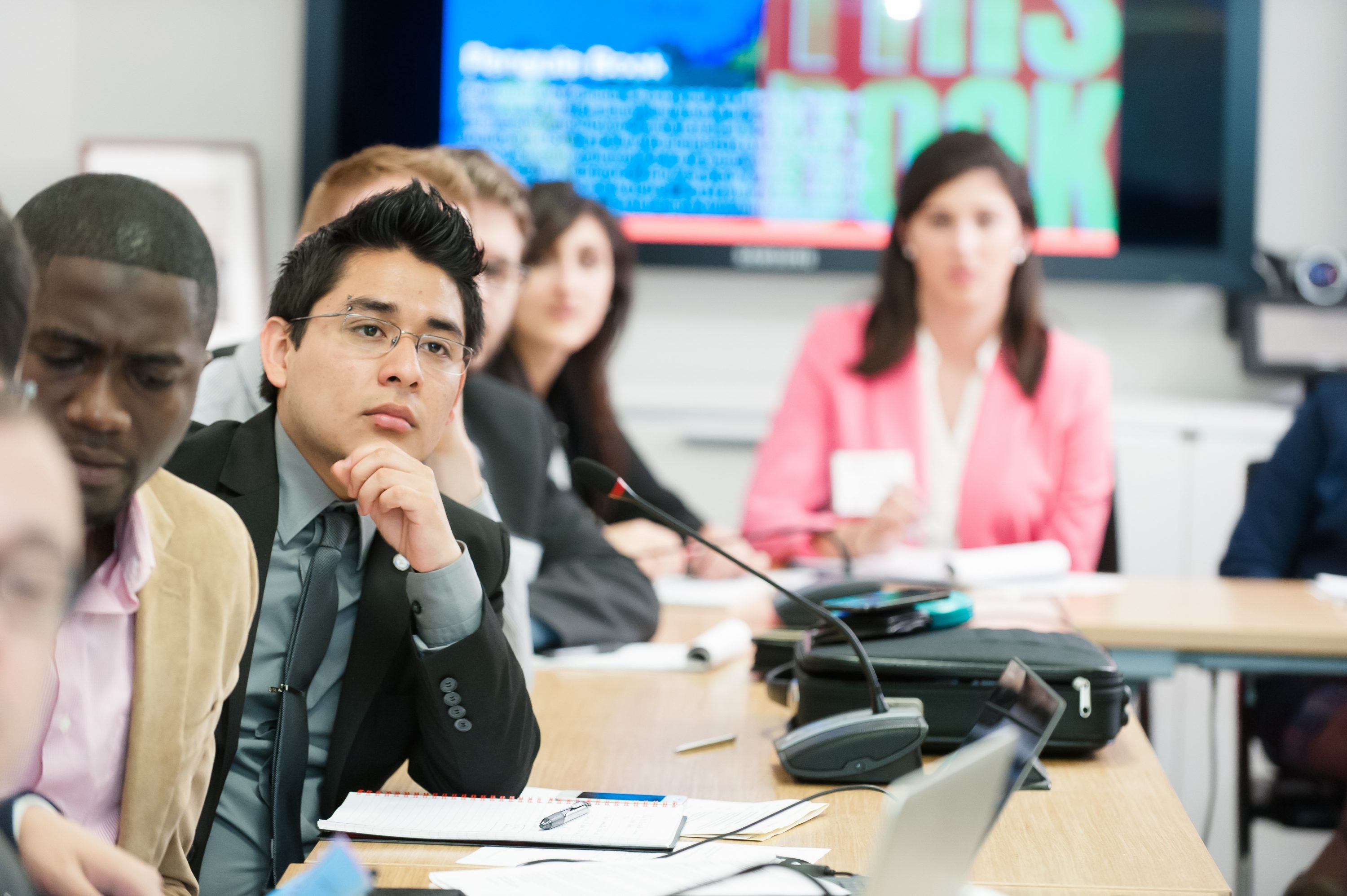
by Catherine Ruby | May 5, 2016 | Internship Experiences, Undergraduate Students
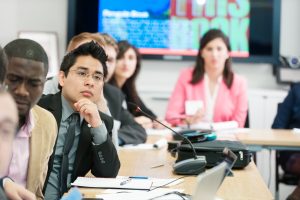
My name is Jose, I am a junior at the School of Diplomacy with a deep interest in the Latin American region. I intern at The Network for Religious and Traditional Peacemakers (the Network). This organization is led by Antti Pentikainen and funded by the Government of Finland. Its purpose is to work with small communities, and religious and international leaders to promote peace around the globe. I would like to give you an insight of my ongoing journey as an intern and share with you my experiences during the spring 2016 semester.
As an intern, my priority is to keep abreast of the initiatives that the Network has implemented, and collect information used for the Network’s newsletter. Additionally, I am occasionally assigned to cover conferences related to the objectives and core values of the network. Since the Network is an NGO registered with ECOSOC at the United Nations, I have a grounds pass that allows me to have access to open meetings. During the first two weeks of the internship, I attended conferences at the International Peace Institute and at the UN Headquarters. At first, I took notes and briefed Mr. Pentikainen. Then, as I met more members of the Network, I began to learn from them and became comfortable with expressing my ideas. As a result, I volunteered to attend conferences of pertinent topics and submit my own articles for approval by the Network’s secretariat. This was an important step because an intern is widely stereotyped as someone whose responsibility is making copies or getting coffee, someone who is consistently told what to do. Be that as it may, in order to stand out, it is our responsibility to convert from knowledge-consumers to knowledge-producers.
During my hiring interview, Antti Pentikainen, the Network’s Executive director, asked what my dream job or goal was. I said that I would like to be part of the mediation process at the UN, but acknowledged the challenges of dealing with the elites at the global level. For that reason, I would rather focus on a region where my contribution may have a sustainable impact for peace and conflict resolution and not be seen as a quick fix. “If you want to work at the UN, you have to make yourself relevant” said Antti as he offered to facilitate a conversation with experts that could point me in the right direction. On February 15th, the Network’s core members gathered in the NY headquarters to talk about what the current Network’s status was and the direction it was expected to go in. Martine, a member and expert on South Asia, asked me if I thought I was being utilized constructively as an intern. I had been interning for just two weeks, so I did not know how to respond to that. “When I was an intern I brought my boss a proposal of three things I wanted to work with. I recommend you do the same in the area you’re interested in, especially Latin America where the Network’s presence isn’t as strong,” said Martine after my long pause. Although with a different angle, Martine’s advice reiterated what Antti said to me the first day I met him: “make yourself relevant”.
That same day, I talked to Antti and asked for two things: The first is that I wanted to be more involved in the Network’s affairs in Latin America; the second was that I wanted to write short articles about the conferences I attended as long as they were related to the organization’s core values, and hence could potentially be incorporated into the newsletter. I was expecting a long diplomatic, eloquent answer that politely declined my ideas. Instead, I got an “okay” followed by a smile and was Cc’d on an email in which I was recommended to provide assistance to a Network affiliate with a strong presence in Latin America where.
Currently, I am helping with the coordination and logistics for conferences and projects dealing with stability in the Americas and have access to information that isn’t always readily available in mainstream media or simply disregarded because of other issues that dominate the headlines. As for attending conferences and writing my own articles, I will be traveling to Washington DC to cover the gathering of leaders from several religions in the Americas. I am also working with Religions for Peace staff in the preparations of a panel where I will be the moderator.
It has been difficult to balance it with schoolwork, but I enjoy every day I spend at my internship. I was extremely lucky to have met a staff that treats me as if they had known me for years and a humble boss who treats others like family and who is always there to help me. Being an intern at the Network requires a lot of work, time and dedication, but the experience they offer is immeasurable.
For anyone who wants to intern in New York, particularly during the spring semester, I have two recommendations that will help you grow and, perhaps, survive:
First, do not be afraid to offer assistance, ask questions, or be the first one to raise your hand if there is an upcoming project that may be of interest to you, provided you’re able to deliver good results.
Second, after snowstorms, bring your dress shoes and an extra pair of socks in a bag, you may need them.
I hope you enjoyed reading about my journey thus far at the Network as much as I have enjoyed working for them. If there is anyone interested in becoming a part of this team, or if there are any questions, I am more than happy to answer them; working here has given me far more joy than I ever imagined and I’m sure you’d feel the same way.













